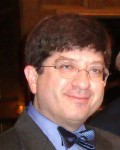 By Ben S. Pollock NSNC President
By Ben S. Pollock NSNC President
With certainty, the renowned physicist Garrison Keillor noted in his radio spot The Writer’s Almanac: “On this date [Feb. 23] in 1927, physicist Werner Heisenberg first described his Uncertainty Principle in a letter. In a nutshell, the Uncertainty Principle states that the more precisely we can determine a particle’s momentum, the less information we have about its position, and vice versa. …”
As social Darwinism is an informal, psychological interpretation of biological Darwinism, there seems to be a social Heisenberg, especially for writers.
(Werner and Elisabeth Heisenberg had seven children, and he enjoyed playing the piano and mountaineering, Wikipedia tells us. As people of his time saw these activities as mutually exclusive, we can see how he came up with his principle.)
The principle’s scientific application, as I understood from school, is if for example a researcher takes stock of an electron as a particle it looks like a particle and if the electron is sized up with wave calipers then it acts as a wave.
Nothing’s original but what I call Social Uncertainty Principle first came up in an early journalism job.
In about 1982 I covered a master class of guitarist Lee Ritenour at Texas’ Irving High School with notebook and camera. The assignment became a photo page with five or six shots and cutlines. I’m still proud of it, because I am not much of a shooter yet this was pretty good. But I came out of that afternoon jarred by how little music I heard while working.
I realized I had precisely observed a news event, even told the world (OK, a few thousand readers), yet I missed the joy of the music. Labeling it Uncertainty Principle gave me a warning I’ve tried to remember since.
Is There a Column in It?
Watching a presidential debate as a concerned American, even as a well-informed voter, is a casual experience compared to watching Republican throw-downs while figuring out what to write — what’s the opinion, how should it be cast and defended, and how to make it different from those of other columnists.
This is true for nonpolitical columns. When misadventure falls to the writer or a family member, the writer — reacting to the situation or right after — will be casting about for material: Is this an anecdote or just another blood pressure spike?
The good outcome of observation skills is a fuller life. It’s a method to avoid dozing through the boring parts of life and certainly the dull parts of work.
The dark side of the principle can be seen in that guitar story. It’s the writer’s Social Uncertainty, restated:
By observing from a distance, you can miss important details, and by focusing on details you can miss the whole picture.
Constantly looking for column fodder, or just itching to write down what might late be telling details, is a tough habit to break. (Especially when I recommended “Hmm notes” in the May 2011 NSNC eColumnist.) Following the advice with moderation is the key.
Betting on bloggers, I chose not to write down the titles of every song at a recent Paul Simon concert; sure enough, the names were posted on several sites within a day. That allowed me to enjoy the show, narrowly and broadly.
But my pen and index card were ready to write down the cellphone texts that a young woman in front of us was typing. She was complaining how I asked her to sit down. When she wasn’t abbreviating, her grammar was exquisite, a good note. Later, that became a blog post.
Spinoza, Been Good to Know Ya
There’s a new wrinkle to Social Uncertainty, live-blogging. The Feb. 26 Oscar ceremony was enhanced with real-time tweets by Salon.com staffers as well as snarky tweets and Facebook comments by friends, among them NSNC members.
I’m pretty sure all the writers got everything they could from the slow-moving awards show, missing little due to Uncertainty.
Maybe the Social Uncertainty Principle masks attention deficit.
My wife and I recently ushered a jazz benefit. Among the audience of 80, three patrons with cameras and six others with smartphones took pictures of the trio throughout their set (including “Brother, Can You Spare a Dime” and “On the Street Where You Live,” according to my notes). They were shooting from the seats or walking around.
There was a 10th photographer, but he was there on assignment for the newspaper. After taking some frames, he left. The roving music lovers might disagree, but I don’t see how they could have listened closely, to get their money’s worth from the $18-$25 tickets.
Keillor concluding with a version of Social Uncertainty:
“Albert Einstein … disagreed with quantum mechanics in general and the Uncertainty Principle in particular; he said, ‘I like to believe that the moon is still there even if we don’t look at it.'”

